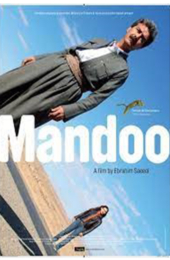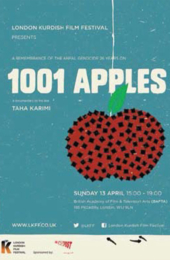The Dance of Aliand Zin
The Dance of Ali and Zin
On the Way toSchool
"On the Way to School" is a 2008 documentary directed by Özgür Doğan and Orhan Eskiköy. The film follows the life of a Turkish teacher, Emre, who is sent to a remote Kurdish village to teach Turkish to Kurdish children over the course of a year [1]. The documentary, titled "İki Dil Bir Bavul" in Turkish, highlights the challenges faced by Emre and explores the cultural and linguistic dynamics in the village [10].
Key details about the film:
- Title: On the Way to School (İki Dil Bir Bavul)
- Directors: Özgür Doğan, Orhan Eskiköy
- Release Year: 2008
- Duration: 80 minutes
- Genre: Documentary
- Plot: A Turkish teacher's experiences teaching Turkish to Kurdish children in a remote village [2].
The film is praised for its depiction of the challenges faced by the teacher and its exploration of cultural nuances in a politically charged environment [6].
Bekes Karzan Kader
- Bekas Karzan Kader is a film director, writer, and producer.
- Background:
- Born on September 8, 1982, Karzan Kader is an Iraqi Kurdish filmmaker based in Stockholm [4].
- Filmography:
- His film "Bekas" highlights the innocence of two young leads on a journey [3].
- Recognition:
- Kader's short film "Bekas" won acclaim, and he continues his work as a filmmaker, also involved in projects like "TRADING PAINT" and "BEFORE WE DIE" [7].
- Trailer:
- Official trailer for "Bekas" can be found on YouTube [8].
- Additional Information:
- Viewer Ratings:
- "Bekas" has received positive ratings, with an IMDb score of 7.3 [10].
- Archival References:
- The film is cataloged in the LIBRIS index by the Royal Library of Sweden [9].
In summary, Bekas Karzan Kader is a notable filmmaker, recognized for the success of "Bekas" and continuing to contribute to the film industry.
Zerê
The phrase "Zerê Hemo Beknezeryan" appears to be in Kurdish. However, without additional context, it's challenging to provide a precise translation or meaning. It may be a name, a location, or a specific expression. Kurdish is spoken in regions across the Middle East, and context is crucial for accurate interpretation. If you have more details, such as the context in which the phrase is used, it would help in providing a more accurate answer.
- Possible Kurdish Origin: "Zerê Hemo Beknezeryan" could be a name or a location in Kurdish. Kurdish names often have meaningful components.
- Context Matters: Understanding the context in which the phrase is used can aid in providing a more accurate interpretation.
Remember, consulting a native Kurdish speaker or providing additional details could yield a more precise answer
1001 Apples
- "1001 Apples" is a poignant documentary directed by Iranian-Kurdish filmmaker Taha Karimi, who tragically passed away in a car accident after completing the film in May 2013[1].
- The film delves into the little-known genocide against the Kurds, particularly the Anfal Genocide in 1988, where the Iraqi Ba'ath party murdered and buried 182,000 Kurds in mass graves[2][7][10].
- The storyline follows a character named Faraj who, along with four other survivors, distributes 1001 red apples and cloves in Kurdistan, symbolizing remembrance and resilience[3].
- Taha Karimi's work has been described as deeply moving and upsetting, shedding light on the consequences of the Anfal Genocide in Iraq and Kurdistan[5].
Vodka Lemon
- Vodka Lemon (2003): A film set in a remote Yazidi Kurdish village in post-Soviet Armenia, directed by Hiner Saleem (also known as Huner Selîm) [1].
- Hiner Saleem (Huner Selîm): Born Azad Shero Selim, Hiner Saleem is a Kurdish director, screenwriter, and producer, known for films like "Vodka Lemon" and "My Sweet Pepper Land" [3].
- Vodka Lemon by Hiner Saleem: The film, directed by Hiner Saleem (Huner Selîm), portrays the life of a widower in a Kurdish village and his daily struggles [5].
- Biography: Hiner Saleem (Huner Selîm) was born on March 9, 1964, in Aqra, Kurdistan. He has a notable body of work in Kurdish cinema [4].
In summary, "Vodka Lemon Hiner Selîm" likely refers to the film "Vodka Lemon" directed by Hiner Saleem (Huner Selîm), offering a glimpse into Kurdish life in post-Soviet Armenia.
The Path(Yol)
"The Path (Yol)" is a 1982 Turkish film directed by Şerif Gören and Yılmaz Güney. The film, pronounced as [joɫ], explores the lives of five Kurdish prisoners granted a week's leave. The story delves into their struggles and the harsh realities of their homeland. Ömer, a young Kurd from Urfa, is a central character dealing with smuggling-related imprisonment and family hardships[1][4]. Yılmaz Güney, co-director and co-writer, was a prominent Turkish author and director. The film received international acclaim, addressing themes of repression, tyranny, and inhumanity[9]. Güney's involvement in the film is noteworthy, considering his escape from Turkish prison to oversee its production[8].
A time for Drunken Horses
A Time for Drunken Horses :
- Film Details:
- Synopsis:
- Reception:
- Visuals:
- Availability:
In summary, A Time for Drunken Horses is a critically acclaimed Kurdish drama offering a poignant portrayal of life's challenges in the region. It received recognition for its passionate storytelling and has visual content available online.








